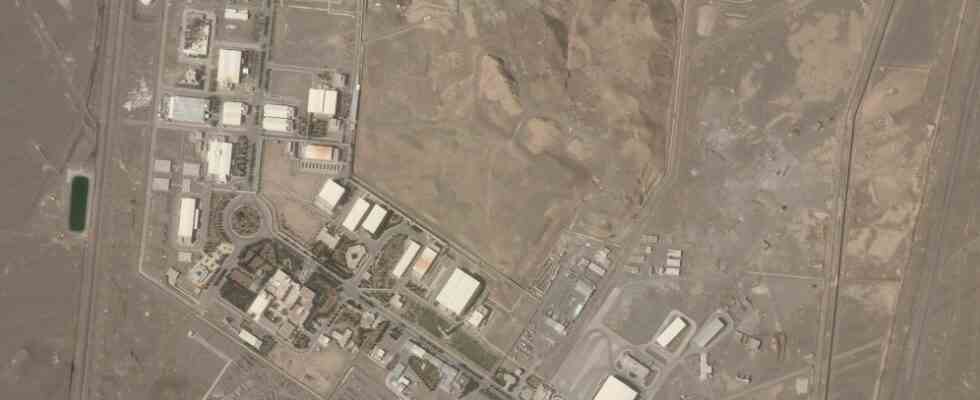The US is currently making no further efforts to revive the nuclear deal with Iran. This was confirmed by the special envoy of the State Department, Robert Malley, in Paris on Monday. Given how the regime is violating human rights in its crackdown on protests and supporting Russian President Vladimir Putin’s war of aggression against Ukraine, the focus is on imposing new sanctions and increasing political pressure.
At the same time, Malley made it clear that the United States is keeping open the possibility of resuming diplomacy “if and when” the time comes. In fact, this has been the position of the US government, coordinated with the Europeans, for several weeks now.
France, Great Britain and Germany are sticking to the agreement so far
If Iran exceeds certain limits with its nuclear program, then there will be a response coordinated with its European partners, said Malley without going into specifics. On Tuesday he wanted to talk to his colleagues from France, Great Britain and Germany about how to proceed. Unlike the USA, these three European states, the so-called E3, are still officially party to the nuclear agreement, which is currently not actually applied.
Iran is expanding its nuclear program unabated, the unilateral US sanctions are still in force. The Europeans have so far refrained from terminating the agreement themselves. According to Western diplomats, this would only offer Iran a pretext for further escalation – up to and including withdrawing from the nuclear non-proliferation treaty.
Federal Foreign Minister Annalena Baerbock said in Berlin on Tuesday that Iran has been violating the provisions of the nuclear agreement for years and is also not meeting other obligations to the International Atomic Energy Agency (IAEA). Given the regime’s brutality against its own people, “we must never allow Iran to develop or acquire nuclear weapons.” Therefore, the Iranian nuclear program must be effectively restricted again. In this sense, Western diplomats still regard the agreement or a possible successor agreement as the only viable diplomatic option.
Inspectors had found suspicious traces of uranium
Text for a supplementary agreement that would see Iran and the US return to compliance has been available since May. So far, however, Iran has not accepted this, but has made additional demands. In the relationship with the USA, the first issue was which sanctions would be lifted. The US refused to remove the Revolutionary Guards from the sanctions list. The then US President Donald Trump had put the elite unit of the Iranian military on this in April 2019 because of terror support.
Tehran then resorted to demanding that the IAEA drop an investigation into three facilities in Iran. IAEA inspectors found traces of uranium there, although Iran never declared the facilities to be part of its nuclear program. This raises the suspicion that they were part of secret activities that could have served military purposes.
During the summer, EU foreign policy chief Josep Borrell tried to reach a rapprochement in separate talks with Iran and the USA, but was unsuccessful. In the case of the IAEA investigation, the Western powers support the position of IAEA chief Rafael Mariano Grossi, who reiterated during his visit to Berlin that Iran must provide answers.
Most recently, Tehran sent a delegation from its atomic energy organization to the IAEA in Vienna and promised to allow the inspectors to visit. It is unclear whether the regime is willing to cooperate on the content or whether the offer is only intended to avert another conviction at the meeting of the IAEA Board of Governors, which begins this Wednesday. The IAEA and Iran had already agreed on a work plan to clarify the open questions in the spring.

